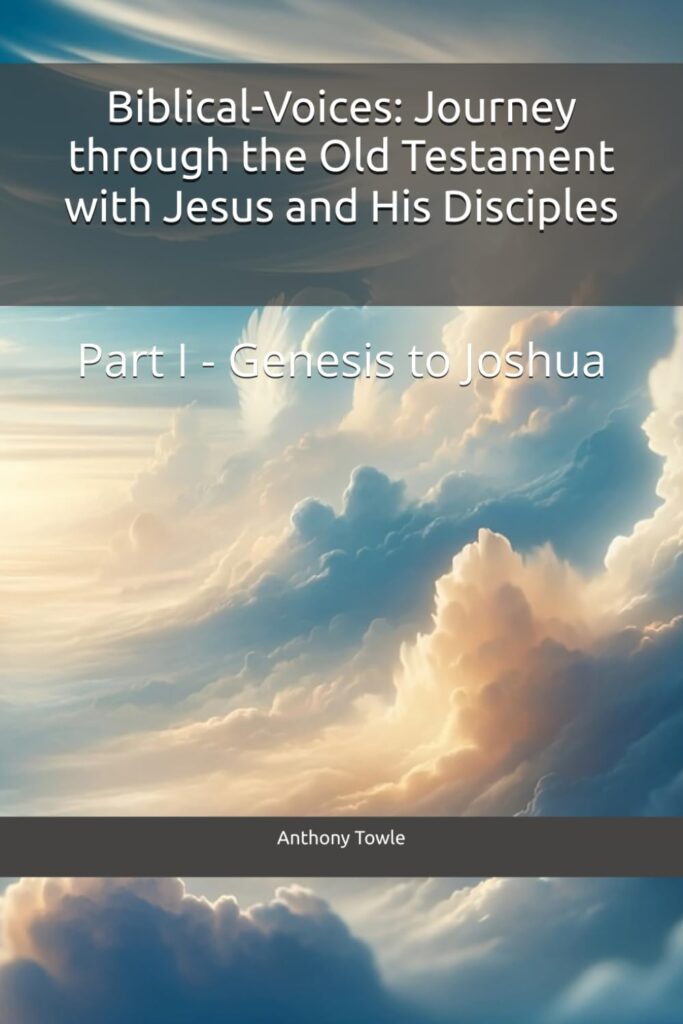Jesus: “Genesis 6:4 speaks of a time when the world was in a state of moral decay, leading up to the Great Flood. This verse introduces the ‘Nephilim’, a term that has intrigued scholars and believers alike.”
Peter: “Lord, the verse says, ‘There were giants in the earth in those days; and also after that, when the sons of God came in unto the daughters of men, and they bare children to them, the same became mighty men which were of old, men of renown.’ Who were these ‘giants’ and ‘sons of God’?”
Jesus: “Peter, the ‘Nephilim’ are often translated as ‘giants’, and their origin has been the subject of much debate. The ‘sons of God’ are interpreted in various ways, including as angels or as lineage from Seth, contrasting with the ‘daughters of men’, possibly referring to the lineage of Cain. The union produced offspring that were ‘mighty men’, heroes of old, men of renown.”
Andrew: “So, this verse indicates a mixing that was not in accordance with God’s plan, leading to further corruption?”
Jesus: “Yes, Andrew. The verse highlights the increasing wickedness in human society at that time, a wickedness so profound that it prompted God to bring about the Flood. It serves as a reminder of the consequences of straying from God’s path and the importance of righteousness.”
John: “Master, the mention of ‘mighty men, which were of old, men of renown’—does this suggest that these figures had a significant impact on the world at that time?”
Jesus: “Indeed, John. These were individuals of great power and influence, remembered in stories passed down through generations. Yet, their legacy is also tied to a period of great moral decline, illustrating that might and renown do not necessarily equate to godliness or virtue.”
Philip: “It’s fascinating, Lord. How should we understand the mention of these beings in the context of faith and our relationship with God?”
Jesus: “Philip, the mention of the Nephilim serves as a backdrop to the narrative of the Flood, emphasizing the extent of human wickedness and the need for divine intervention. It reminds us of the importance of living righteously and following God’s commandments, highlighting the consequences of turning away from God.”
Matthew: “This verse, then, is not just a historical account but a cautionary tale?”
Jesus: “Exactly, Matthew. It’s a caution against the dangers of hubris and moral decay. It underscores the need for vigilance in our spiritual lives and the constant pursuit of righteousness in the eyes of God.”
Bartholomew: “Lord, does this historical context have a lesson for us today?”
Jesus: “Bartholomew, the lesson remains ever relevant. It calls us to reflect on our actions and their impact on the world, urging us to seek a path of righteousness and to live in a manner that honors God, mindful of the consequences of our choices.”
Thomas: “So, in a way, this verse serves as a warning to all generations about the importance of aligning with God’s will.”
Jesus: “Precisely, Thomas. It’s a timeless reminder of God’s sovereignty, the importance of obedience to His commandments, and the dangers of deviating from His path. It challenges us to live lives that are pleasing to God, avoiding the pitfalls of past generations.”
Simon the Zealot: “It’s a powerful reminder of God’s justice and mercy, showing us the importance of staying true to His teachings.”
Jesus: “Indeed, Simon. Let the story of Genesis 6:4 inspire us to live with integrity, to uphold righteousness, and to remember the lessons from the past as we walk in faith and obedience to God.”
James, son of Zebedee: “It’s a sobering thought, Master. Our actions have far-reaching consequences, not just for ourselves but for the world around us.”
Jesus: “Yes, James. It emphasizes the responsibility we have to live according to God’s commandments, serving as stewards of His creation and bearers of His light in a world that often wanders from His path.”

